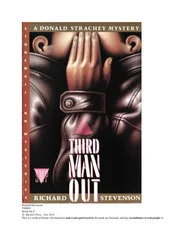As it shall pass the view of these spectators.
Nay, now y'are tedious, sirs; for shame begin.
And, Mitis, note me; if in all this front
You can espy a gallant of this mark,
Who, to be thought one of the judicious,
Sits with his arms thus wreath'd, his hat pull'd here,
Cries mew, and nods, then shakes his empty head,
Will shew more several motions in his face
Than the new London, Rome, or Niniveh,
And, now and then, breaks a dry biscuit jest,
Which, that it may more easily be chew'd,
He steeps in his own laughter.
COR. Why, will that
Make it be sooner swallowed?
ASP. O, assure you.
Or if it did not, yet as Horace sings,
Mean cates are welcome still to hungry guests.
COR. 'Tis true; but why should we observe them, Asper?
ASP. O, I would know 'em; for in such assemblies
They are more infectious than the pestilence:
And therefore I would give them pills to purge,
And make them fit for fair societies.
How monstrous and detested is't to see
A fellow that has neither art nor brain,
Sit like an Aristarchus, or start ass,
Taking men's lines with a tobacco face,
In snuff still spitting, using his wry'd looks,
In nature of a vice, to wrest and turn
The good aspect of those that shall sit near him,
From what they do behold! O, 'tis most vile.
MIT. Nay, Asper.
ASP. Peace, Mitis, I do know your thought;
You'll say, your guests here will except at this:
Pish! you are too timorous, and full of doubt.
Then he, a patient, shall reject all physic,
'Cause the physician tells him, you are sick:
Or, if I say, that he is vicious,
You will not hear of virtue. Come, you are fond.
Shall I be so extravagant, to think,
That happy judgments, and composed spirits,
Will challenge me for taxing such as these?
I am ashamed.
COR. Nay, but good, pardon us;
We must not bear this peremptory sail,
But use our best endeavours how to please.
ASP. Why, therein I commend your careful thoughts,
And I will mix with you in industry
To please: but whom? attentive auditors,
Such as will join their profit with their pleasure,
And come to feed their understanding parts:
For these I'll prodigally spread myself,
And speak away my spirit into air;
For these, I'll melt my brain into invention,
Coin new conceits, and hang my richest words
As polish'd jewels in their bounteous ears?
But stay, I lose myself, and wrong their patience:
If I dwell here, they'll not begin, I see.
Friends, sit you still, and entertain this troop
With some familiar and by-conference,
I'll hast them sound. Now, gentlemen, I go
To turn an actor, and a humorist,
Where, ere I do resume my present person,
We hope to make the circles of your eyes
Flow with distilled laughter: if we fail,
We must impute it to this only chance,
Art hath an enemy call'd ignorance.
[EXIT.
COR. How do you like his spirit, Mitis?
MIT. I should like it much better, if he were less confident.
COR. Why, do you suspect his merit?
MIT. No; but I fear this will procure him much envy.
COR. O, that sets the stronger seal on his desert: if he had no enemies,
I should esteem his fortunes most wretched at this instant.
MIT. You have seen his play, Cordatus: pray you, how is it?
COR. Faith, sir, I must refrain to judge; only this I can say of it, 'tis
strange, and of a particular kind by itself, somewhat like 'Vetus
Comoedia'; a work that hath bounteously pleased me; how it will answer the
general expectation, I know not.
MIT. Does he observe all the laws of comedy in it?
COR. What laws mean you?
MIT. Why, the equal division of it into acts and scenes, according to the
Terentian manner; his true number of actors; the furnishing of the scene
with Grex or Chorus, and that the whole argument fall within compass of a
day's business.
COR. O no, these are too nice observations.
MIT. They are such as must be received, by your favour, or it cannot be
authentic.
COR. Troth, I can discern no such necessity.
MIT. No!
COR. No, I assure you, signior. If those laws you speak of had been
delivered us 'ab initio', and in their present virtue and perfection, there
had been some reason of obeying their powers; but 'tis extant, that that
which we call 'Comoedia', was at first nothing but a simple and continued
song, sung by one only person, till Susario invented a second; after him,
Epicharmus a third; Phormus and Chionides devised to have four actors, with
a prologue and chorus; to which Cratinus, long after, added a fifth and
sixth: Eupolis, more; Aristophanes, more than they; every man in the
dignity of his spirit and judgment supplied something. And, though that in
him this kind of poem appeared absolute, and fully perfect, yet how is the
face of it changed since, in Menander, Philemon, Cecilius, Plautus, and the
rest! who have utterly excluded the chorus, altered the property of the
persons, their names, and natures, and augmented it with all liberty,
according to the elegancy and disposition of those times wherein they
wrote. I see not then, but we should enjoy the same license, or free power
to illustrate and heighten our invention, as they did; and not be tied to
those strict and regular forms which the niceness of a few, who are nothing
but form, would thrust upon us.
MIT. Well, we will not dispute of this now; but what's his scene?
COR. Marry, 'Insula Fortunata', sir.
MIT. O, the Fortunate Island: mass, he has bound himself to a strict law
there.
COR. Why so?
MIT. He cannot lightly alter the scene, without crossing the seas.
COR. He needs not, having a whole island to run through, I think.
MIT. No! how comes it then, that in some one play we see so many seas,
countries, and kingdoms, passed over with such admirable dexterity?
COR. O, that but shews how well the authors can travel in their vocation,
and outrun the apprehension of their auditory. But, leaving this, I would
they would begin at once: this protraction is able to sour the
best-settled patience in the theatre.
[THE THIRD SOUNDING.
MIT. They have answered your wish, sir; they sound.
COR. O, here comes the Prologue.
[ENTER PROLOGUE.
Now, sir, if you had staid a little longer, I meant to have spoke your
prologue for you i'faith.
PROL. Marry, with all my heart, sir, you shall do it yet, and I thank you.
[GOING.
COR. Nay, nay, stay, stay; hear you?
PROL. You could not have studied to have done me a greater benefit at the
instant; for I protest to you, I am unperfect, and, had I spoke it, I must
of necessity have been out.
COR. Why, but do you speak this seriously?
PROL. Seriously! ay, wit's my help, do I; and esteem myself indebted to
your kindness for it.
COR. For what?
PROL. Why, for undertaking the prologue for me.
COR. How! did I undertake it for you?
PROL. Did you! I appeal to all these gentlemen, whether you did or no.
Come, come, it pleases you to cast a strange look on't now; but 'twill not
serve.
COR. 'Fore me, but it must serve; and therefore speak your prologue.
PROL. An I do, let me die poisoned with some venomous hiss, and never live
to look as high as the two-penny room again.
[EXIT.
MIT. He has put you to it, sir.
COR. 'Sdeath, what a humorous fellow is this! Gentlemen, good faith I can
speak no prologue, howsoever his weak wit has had the fortune to make this
Читать дальше












